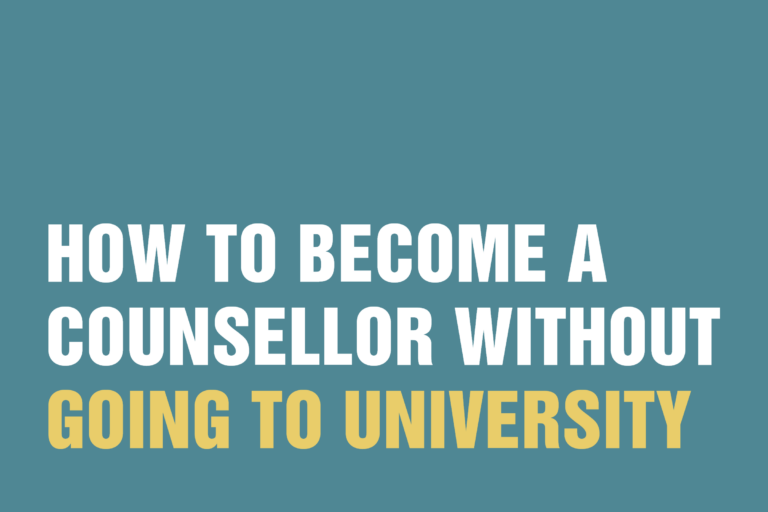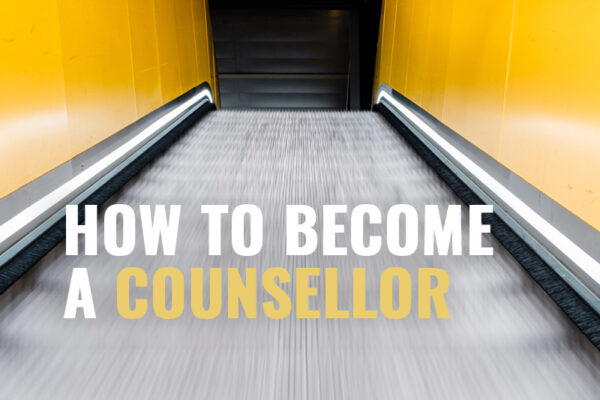As with many career paths, there are several different routes you can take when it comes to becoming a counsellor. University might be the first choice that comes to mind, but there are many other ways to become a certified therapist and start a new career.
University isn’t for everyone, and if you’re exploring how to become a counsellor without going to university, you’ll want to start by taking a look at other courses that are offered by counselling centres and colleges. In this blog, we’ll be exploring some of the alternative options available to you.
What You Need to Become a Counsellor
Whether you’re going to university or pursuing another method of training, there are a couple of things you need in order to be able to start practising as a counsellor. As you’re exploring your options, make sure you are conducting plenty of research, and that you know exactly what you will get out of each course.
You’re expected to be a member of a professional body like the British Association for Counselling and Psychotherapy (BACP), the UK Council for Psychotherapy (UKCP) or the National Counselling Society (NCP). These professional bodies will often require some sort of certification, so it’s important to make sure that any training you’re considering will get you a certification that has been approved or accredited by one of these bodies.
If you’re interested in a very specific role, check for any additional clinical or professional qualifications that may be required to become a counsellor. Some might need you to be a registered nurse, occupational therapist, or social worker for example. So, if you have your heart set on a particular role, make sure you know exactly what you need to do to achieve your goal.
How to Become A Counsellor Without Going to University
For those who don’t want to take the university route, there are still ways to get certified. It’s typically recommended that you take a three-stage route through qualifications, which will take around three to four years.
Introduction to Counselling
You’ll start with an introduction to counselling which will give you insight into what a role as a counsellor entails and what would be expected of you. You’d also get an understanding of different specialisms that are available. Some courses will also cover some basic counselling skills such as listening and responding. This part of the training is designed to help you decide whether counselling is right for you before you commit fully, and give you an idea of where your career might head.
This first stage is often optional, but highly recommended, and takes around 8-12 weeks to complete. For more information, you’ll want to look into local colleges and adult education centres.
Develop Your Counselling Skills
Stage two is where you begin developing your counselling skills with a foundation certificate. Here, you’ll learn more about what counselling is (and what it’s not), different theories of basic human development, and different models of counselling. Expect to learn more about Maslow’s Hierarchy of Needs, Erikson’s Psychosocial Needs, and Cognitive Behavioural Therapy.
Alongside the theoretical side of the course, you’ll also be working on gaining and developing your counselling skills. You’ll be developing your self-awareness, boundary-setting skills, and learning to work empathically. It’s worth noting that Counselling Skills certificates can help in a number of additional roles outside of pursuing a career as a therapist. These skills can be used in other types of health and social care work, teaching and learning, and other such helping roles.
Core Practitioner Training
The final stage of qualification is known as your Core Practitioner Training and is equivalent to university study. By the end of this stage, you’ll come out with – at the very least – a diploma in counselling or psychotherapy. The course will typically be a blend of:
– Knowledge-based learning: psychological theories and their applications, ethics and the law, common medications, and so on.
– Therapeutic competencies: skills such as monitoring and evaluation, relationship building, reflective practice and use of supervision.
– Research awareness: a critical awareness of research findings, methodology and more.
During this stage of your training, you’ll also begin your placements where you can begin putting your theoretical skills into practice to gain crucial clinical experience.
After this training is completed, there are a number of other routes available to you. You may wish to specialise in a particular kind of counselling, such as bereavement or addiction. Alternatively, you may just want to begin practising. Regardless, it’s expected that you’ll keep your skills and knowledge up to date as you continue your career.
Alternative routes to become a counsellor
There are other ways to begin your career as a counsellor that focus on building your practical skills and allow you to dip your toes into the industry without going to university.
Voluntary work with agencies such as Family Action will allow you to develop your counselling skills in the field, while also giving you access to ongoing support from the organisation. In some cases, the agency may offer training in specialist counselling services, which can then be paid back in volunteer hours. This can be a very cost-effective way to begin your career in counselling.
Similarly, counselling organisations such as Relate and The Samaritans offer opportunities for continuous development – often in specialist areas. However, these courses and opportunities tend to have entry requirements that need to be met in order to qualify. This makes them a good option for people looking to further their careers in counselling.
A career in counselling is incredibly fulfilling, and the skills learned throughout the training are incredibly transferable to a number of careers. If you’re looking at how to become a counsellor without going to university, there are a number of other ways to build your skills and become a counsellor. Explore course options and book a call with The Awareness Centre Training School to start your professional journey to becoming a qualified therapist.







